Organic pest control means creating healthy soil, using companion planting, learning what the good bugs and bad bugs are, and attracting predatory insects.
Does Organic Pest Control gardening sound like an unattainable dream?
To many gardeners, organic pest control might sound impossible, but achieving organic pest control is all about creating a working ecosystem.
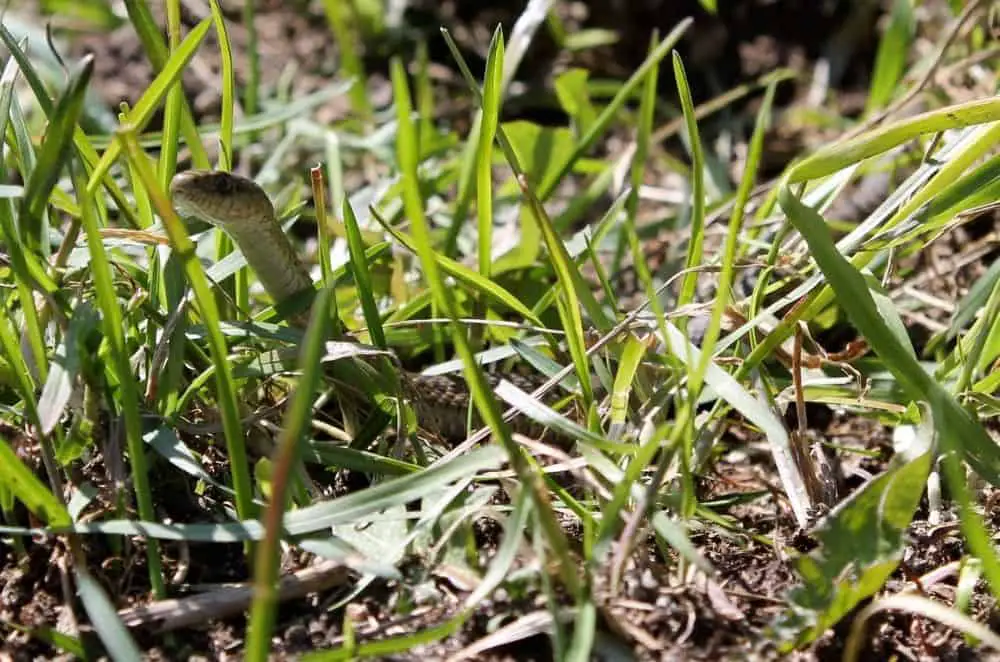
Organic Pest Control for Gardens
Here are some general tips for using an organic approach to managing pests in your garden.
The one thing to note with any organic management is that it takes time, you might not see the effects immediately.
People tend to reach for sprays because it’s fast, and even though can buy or make organic and natural ones, you should still practice long term strategic methods for organic pest management.
Organic Pest Control for Long-term Success
- Grow companion planting herbs and flowers to deter pests away from your crops or attract them away from eating them (see the chart at the end of the post).
- Attract the good bugs that eat the pests using flowers and plants they love. We always encourage the wasps to eat cabbage moth caterpillars and found a great reduction in damage.
- Many flowers attract hoverflies, lacewigs, and ladybugs. I’m sowing a beneficial insect blend this season for attracting lacewings, hover flies, and ladybird beetles to help prevent aphids, thrips, and caterpillars.
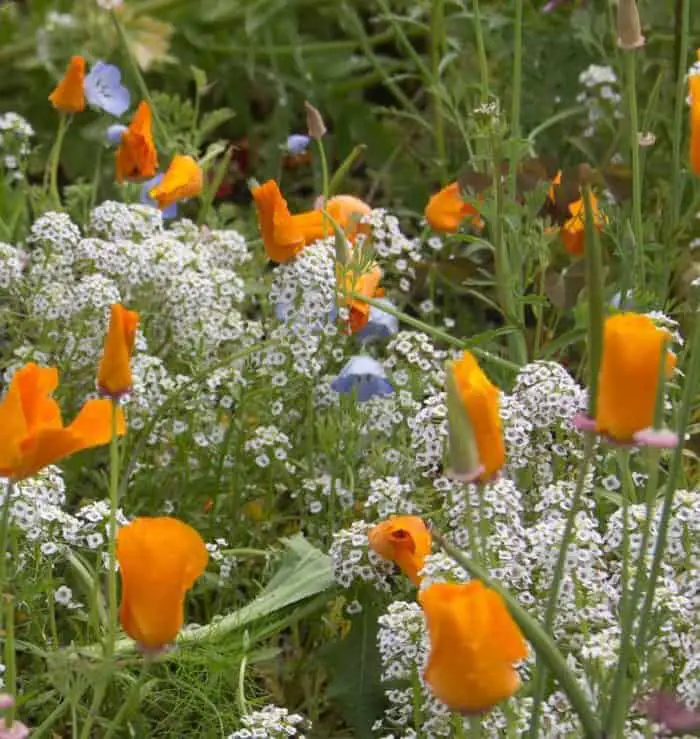
- Use constant vigilance and hand-picking for the larger pests like squash bugs and slugs (yuck, I know, but it’s one of the best tactics, especially if you can’t keep ducks or chickens).
- Use beneficial helpers like ducks or chickens for bug and slug control. We have a chicken run around most of the garden for bug control.
- Use hoop tunnels. Using tunnels with insect netting or light weight row cover during the peak infestations (for example when the bad bug lays eggs) has great success at deterring pests short term.
Homemade Organic Pest Control Soap
You can also make homemade insecticidal soap to help with your pest control problems in your garden.
You’ll need:
- 1 spray bottle
- 1 gallon of water
- 2tbs of vegetable oil
- 5tbs of liquid soap – Don’t use any detergents or soaps that contain a degreaser.
In order to test spray this homemade insecticidal soap, you should first spray a couple of leaves. If there are any signs of withering or discoloration, stop using this spray on that plant.
Good Bugs for Organic Pest Control
Here are some of the good bugs that help with organic pest control for your garden and garden vegetables.
- Ladybugs
- Praying mantises
- Predatory nematodes
- Spider mite predators
- Whitefly parasites
- Whitefly predators
- Thrip predator mites
- Pirate bugs
The more you know about bugs in your garden the better understanding you’ll have on which ones are bad and which are good. There’s a great book below (affiliate link) if you wish to learn more.
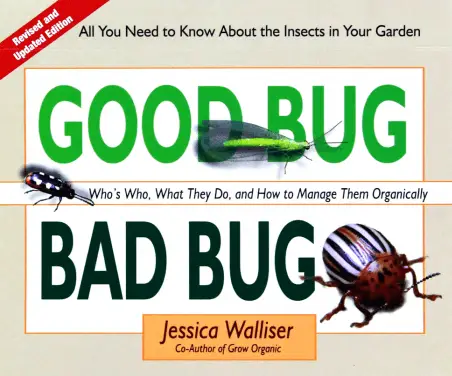
What have been your most successful organic pest control methods?

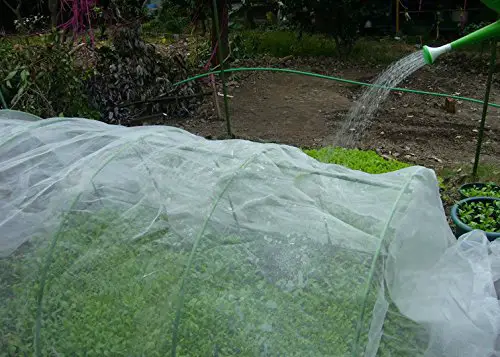
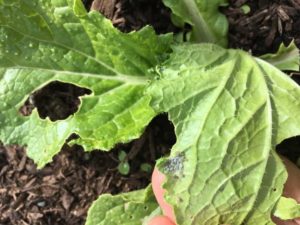
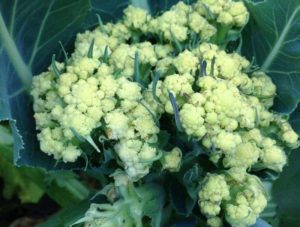
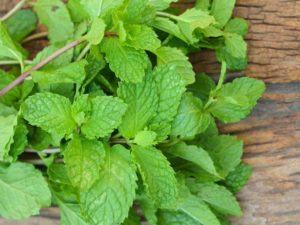
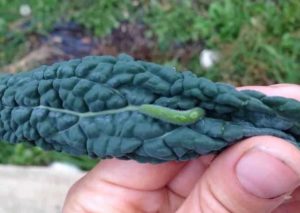
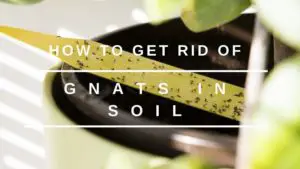

You have shared very useful information for a gardener. Thank you. The infographic that you used in your article is unique and attractive. I will share this information with other people also. Thanks again.
The best strategy to deal with pests long term is to attract beneficials. Plant yarrow, basket of gold, peppermint etc. to attract hoverflies, parasitoid wasps and ladybugs – they’ll take care of those aphids and other bugs. Attract birds to your garden and they’ll keep the caterpillars at bay. Beneficials never eliminate pests completely, but they definitely control them. Plus all the flowers look nice and attract pollinators!
Thanks Rita, thank you for sharing those tips 🙂
Sacrificing a plant is worth it. It’s hanging out the dinner bell…the beneficials will come!
I love your guide. Organizing true organic pest control for your garden is very time consuming and requires a lot of patience, but the results totally worth it.